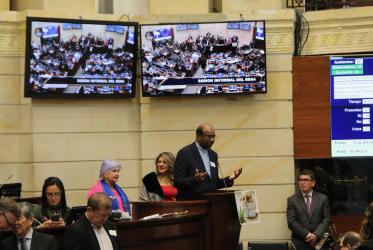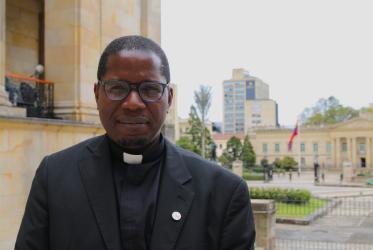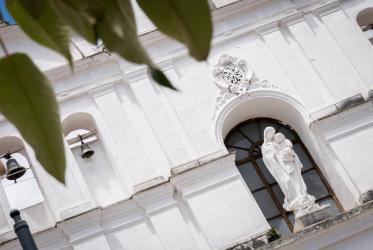Colombia
Indigenous people lived in Colombia long before it was colonized by the Spanish in the 16th century. It became an independent country in 1819. Since then, two political parties, the conservatives and the liberals, have dominated the political scene. Socially, Colombia has been divided between the ruling elite and the poor masses. In the 20th century, several revolutionary movements have fought guerilla wars. Two of these are still active, but have lost much of the popular support. To counter the guerillas, the government has favoured the development of paramilitary groups. The rural population has been caught in between, and has suffered massive oppression, destruction and killings. Violence is also rampant in the cities, partly criminal, partly political. Production and trade of drugs, kidnapping, etc., have corrupted the social texture of the country. In this context, the Catholic Church which is the majority church, has sought to mediate in often dangerous conflict situations. Several churches and organizations have formed an ecumenical network, to accompany communities who are victims of social and political violence. Protestant missions started in the 19th century, and the Protestant churches, although in a minority, are actively involved in promoting peace and defending human rights. They are organized in the Evangelical Council of Colombia. In the 20th century Pentecostal and independent churches have established themselves in Colombia. About 50 percent of the Protestants are Pentecostal. The Evangelical Confederation of Colombia is affiliated with the WEA.
More on Colombia:
Ecumenical solidarity visit to Colombia
An international ecumenical delegation was sent as "Living Letters" to visit Colombia from 6 to 12 December 2008. The programme included the capital Bogotá, the city of Barranquilla in the north of the country and locations in the western and north-western regions of the country that have suffered badly from armed violence and the forced displacement of people. Read more on the visit to Colombia...



